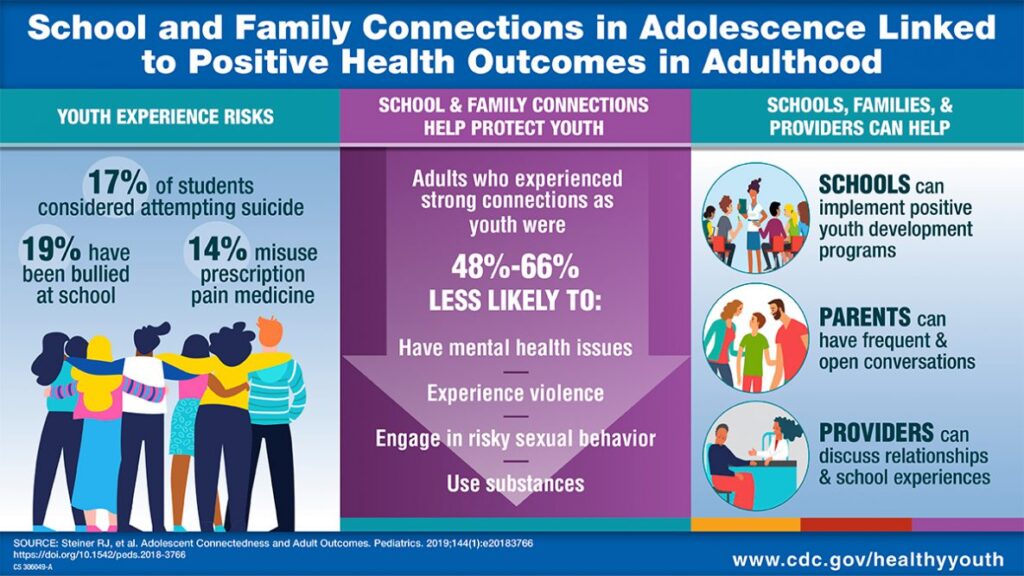May is Children’s Mental Health Awareness Month and an excellent time to focus on protective factors that help youth get a healthy start in life. While the number of adolescents reporting poor mental health is increasing, helping them build connectedness with others can help protect their mental health.
Connectedness is the sense of being cared for, supported, and belonging, and can be centered on feeling connected to family, teachers, peers, or other important people in a young person’s life. According to the CDC, connectedness is an important protective factor that can reduce the likelihood of a variety of health risk behaviors. Children and adolescents who feel connected at home and school are less likely to experience negative health outcomes related to sexual risk, substance use, violence, and mental health. Strong feelings of connectedness at school has been shown to have positive effects on academic achievement, including having better school attendance, higher grades and test scores, and staying in school longer.
Recent CDC findings published in the journal Pediatrics suggest that connectedness has lasting effects on a young person’s resilience. Youth who feel connected at school and at home were found to be as much as 66 percent less likely to experience health risk behaviors related to sexual health, substance use, violence, and mental health in adulthood.





